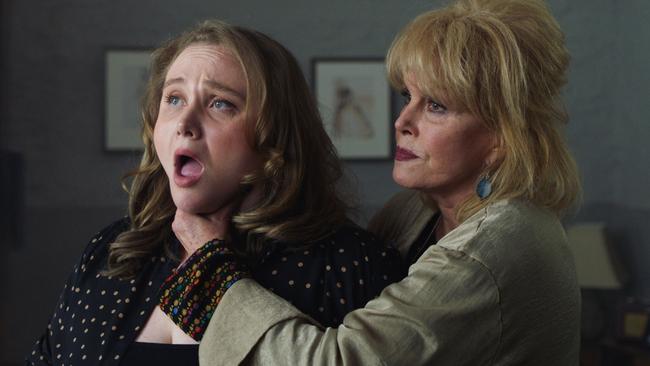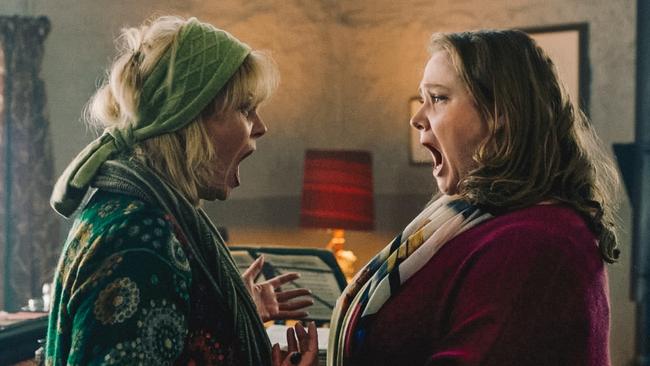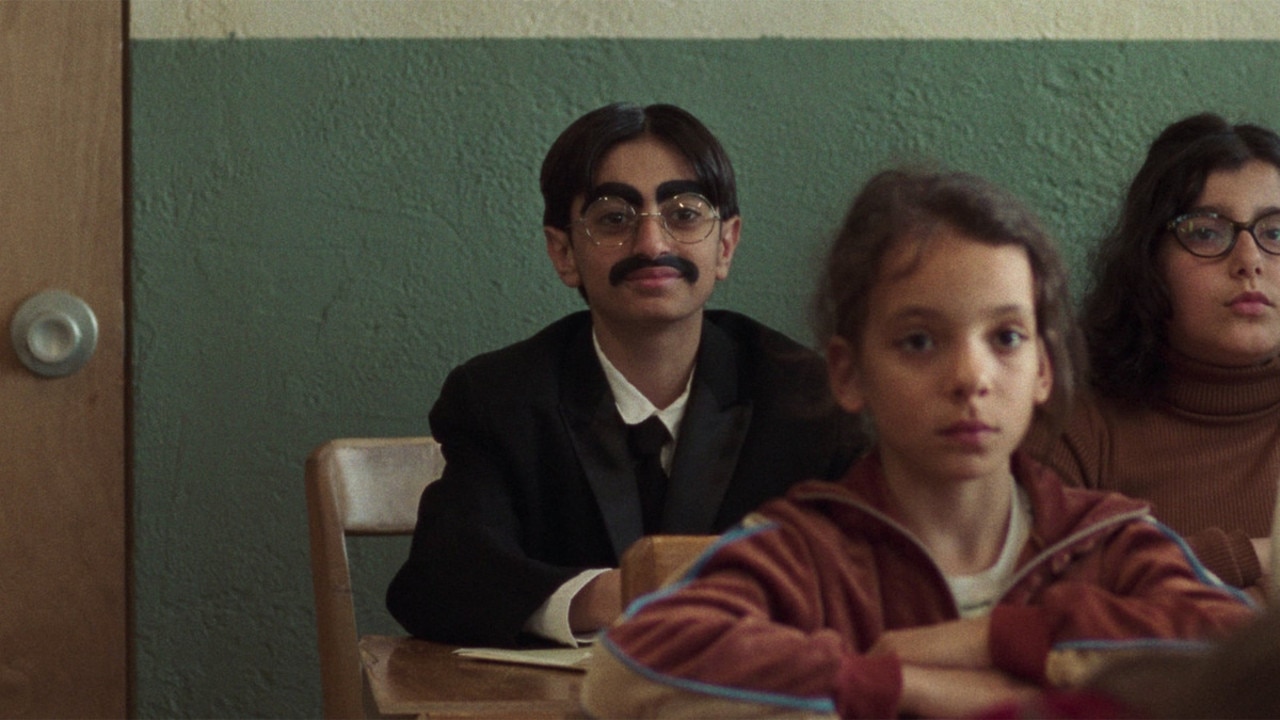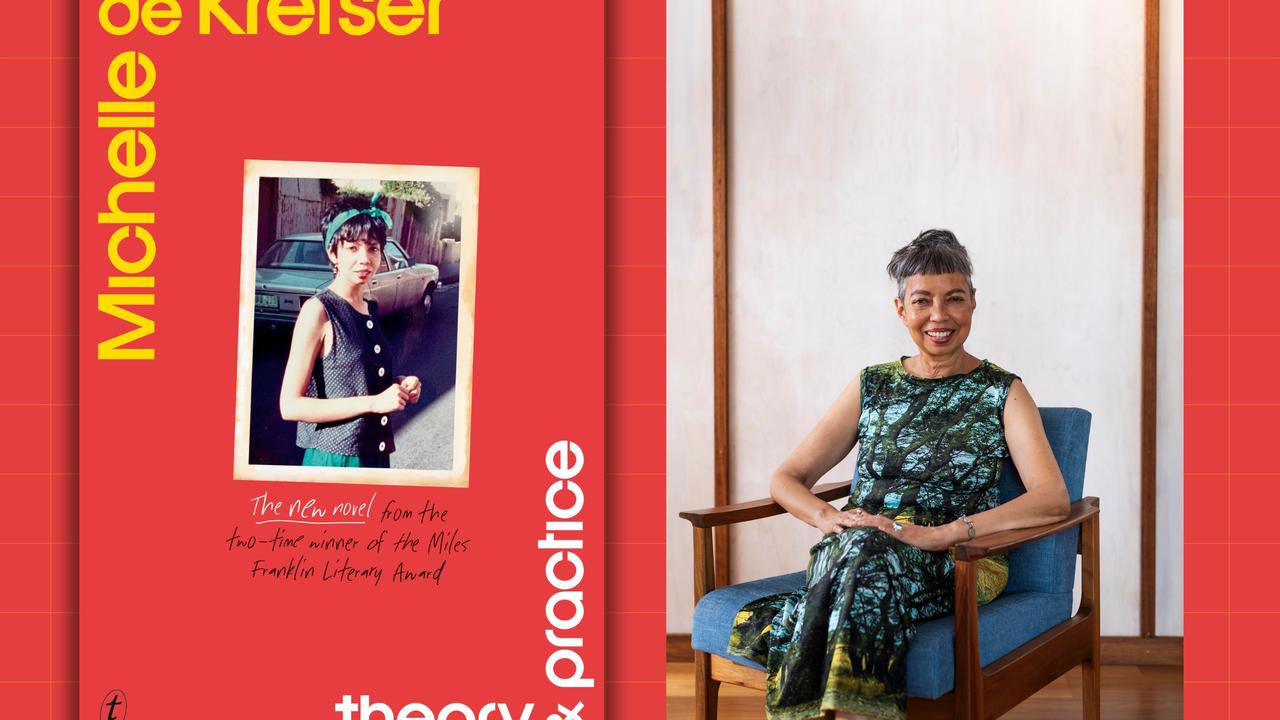Why Falling for Figaro director Ben Lewin changed his tune on opera
In Falling for Figaro, Ab Fab icon Joanna Lumley transforms into a singing teacher with some truly sadistic methods. Director Ben Lewin opens up on the casting coup and his own musical revelation.

When he was a young man, Ben Lewin resented opera because he felt ordinary people couldn’t afford to see it. “When I was first living in London I was an impoverished student,” says the Melbourne-raised film director and writer. “I loved music and opera and you could afford to go to everything except opera. Anyway, I developed this resentment, but I still loved the music.”
In the early 1970s, Lewin abandoned his career as a criminal barrister in Australia to take up a scholarship at England’s National Film and Television School. Despite once assuming that live opera was only for the elite, Lewin’s latest film, Falling for Figaro, is a crowd-pleasing rom-com which climaxes in the febrile world of opera-singing competitions.
“The film made me a total convert,” says Lewin, who co-wrote the script with Allen Palmer.
Starring Joanna Lumley, Australia’s Danielle Macdonald and Hugh Skinner, Falling for Figaro revolves around Millie (Macdonald), who shocks her colleagues when she quits her well-paid London job as a fund manager to become an opera singer – an ambition no one knew she had. Lumley plays Millie’s singing teacher Meghan Geoffrey-Bishop, who lives in an eccentric Scottish village and hails from the Agatha Trunchbull school of pedagogy: she grabs Millie’s tongue, squeezes her throat and denounces her students’ singing as “just above karaoke standard” or fit for cruise ship burials.
“She is a f..king sadist,’’ declares the normally unflappable Millie, who nonetheless persists. Millie finds herself drawn to Meghan’s only other student, surly pub chef Max (Skinner) despite the fact that he is her rival in the Singer of Renown competition, a potential stepping-stone to a professional career.
Lewin – who directed the critically lauded 2012 film The Sessions, in which Helen Hunt gave an Oscar-nominated performance as a sex therapist – feels that recruiting Lumley, the gloriously drink and drug-addled Patsy Stone from Absolutely Fabulous, is a casting coup.
“I feel I deserve congratulations for that,” he jokes. “Joanna is married to a leading opera conductor, so I got the whole package. It was like fate – she really is part of the opera world and fitted the part like a glove.”
If anything, Lewin adds, Lumley understood the opera world all too well.
“She would say to me, ‘My friend Kiri Te Kanawa said it wasn’t normal for teachers to grab the tongues of their students’,” he says. “And then I would have to persuade her that Meghan wasn’t normal, that she was a sadist – she crossed that line. So many of the young singers that we engaged with recognised that – ‘She’s just like a teacher that I had’.”
He cast Macdonald in the lead role after Judi Levine, his wife and co-producer of the film, watched her perform opposite Jennifer Aniston in the Netflix movie Dumplin’, about beauty pageants, body issues and mother-daughter tensions. “Danielle is really authentic,” he says. “I don’t feel the acting with her; I feel this is a real person, and that counts for a lot with me. I find her really lovable and surprising.”

Until recently, women who played romantic leads had to conform to a narrowly defined petite body type. Was it a conscious decision to cast a plus-size actor as Millie? “No,” replies Lewin. “By and large (people) are used to having Julia Roberts and Richard Gere in a rom-com and it tends to drive the movie’s visibility. We weren’t in that league and the movie wasn’t just a rom-com.
“It needed to be more real and I didn’t want to have Ken and Barbie casting.”
I ask The Dunera Boys director what working with his wife is like. He produces several sharp barks of laughter and replies: “Oh it is pure hell, and I hope I will be rewarded on the other side. We’ve gone through years of torment and misery and abuse and what can I tell you?”
Like the poet protagonist in 2012’s The Sessions, Lewin is a polio survivor. “Look at me!” he exclaims. “I’m still alive, I’m still making movies, I have a mortgage, a dog, a lovely physiotherapist (the physio arrives during this interview) – the whole catastrophe … What more could I want?’’ He says that when working with Levine, who co-produced the recent, quirky comedy about middle-aged female desire, How to Please a Woman: “We find it more difficult deciding what colour to paint the house than agreeing, say, on an actor.’’
Falling for Figaro is a Scottish-Australian co-production and while it’s set in Scotland, Lewin says it features “some of the best Australian opera singing talent”. Post-production, including recording the Melbourne Symphony Orchestra between pandemic lockdowns, was conducted in Victoria.
He was drawn to this project because of its origin story, which he describes as “a kind of movie fairy tale”. He explains how an opera fan “from Sydney called John Wade was walking along the street in Auckland, and he heard this girl busking, singing opera, and it really moved him. He invited her to come and sing at his birthday party in Sydney and decided to become her patron and put her through opera singing school (in the US).’’
A producer later told the benefactor about Falling for Figaro “and Wade decided to, essentially, finance us” – he is an executive producer of the film.
Wade’s protege, Emily Mwila, plays a cameo role, while a host of young Australian opera singers tackle famous arias composed by Mozart, Puccini and other musical giants. While Macdonald’s and Skinner’s singing is dubbed, nearly all of the Voice of Renown competition singers are the real deal. “All the big numbers are sung by Australian singers,” says Lewin.
He finished shooting in 2019, just before Covid forced shutdowns in the UK, and he has already written the script for his next film, Sylvia and the President. It’s about Sylvia Flexer, who led a Depression-era protest to Washington on behalf of her fellow polio victims who were being denied jobs. At the time, President Roosevelt was hiding the extent of his disability, says Lewin, who uses crutches to get around. “He never allowed himself to be photographed in a wheelchair, or to be seen in public in a wheelchair. Always wanted to look erect and strong. It was a piece of theatre, really.”
He says it’s “a great irony” that the administration of a disabled president discriminated against polio victims: “Sylvia was determined to get into his face on that.”
Like The Sessions, about the sexual awakening of a poet confined to an iron lung because of polio, this project has acute personal resonance for Lewin: “Yeah, a lot of the shit that Sylvia went through I went through. And other generations.” As for negotiating a world largely built for the non-disabled, the California-based director has no time for self-pity, remarking matter-of-factly: “Everyone has got some monkey on their back.”
When directing, he says “I really learn things from the actors that I work with”. For him, one of Falling for Figaro’s key moments is when we see Lumley’s character become emotional while watching Millie and Max practise a duet.
“She kind of transforms from being this kind of troll bitch from hell into a woman with tears in her eyes, who is moved. It’s wonderful. To be able to play a scene like that in that one shot is really satisfying for a filmmaker.”
Falling for Figaro is in cinemas from July 14.




To join the conversation, please log in. Don't have an account? Register
Join the conversation, you are commenting as Logout